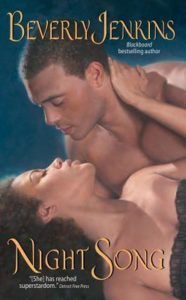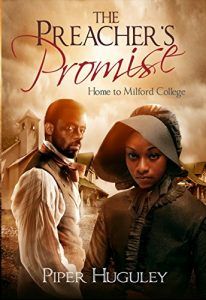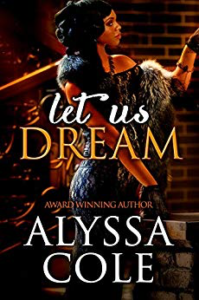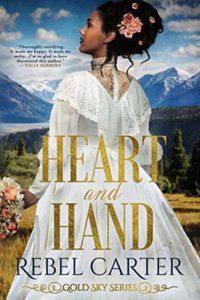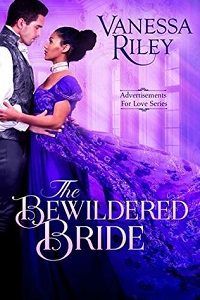First, let’s start with a couple of definitions: Black Romance: romance written by a Black author in which all concerned parties are Black. Black-Written Interracial Romance: romance written by a Black author in which one or more, but not all, concerned parties are Black. Note: there is also Black-written romance in which none of the parties are Black, but we’ll save those for another time. One of the key elements of Black love is about reading Black History with a large helping of Happy Ever After. Some of the greatest books by Black authors (some of the greatest books period) feature explorations of our collected past as Black Americans, whether our ancestors were brought to the American continents via the Transatlantic Slave Trade or if they immigrated here in the centuries following. Many of these books are—for lack of a better word—traumatic to read. They’re Important Books, and incredibly well written and thought provoking. But few of them left me smiling with joy as I turned the last page. Octavia Butler’s Kindred, Alice Walker’s The Color Purple (okay, that one ends well, but the rest), The Bluest Eye, Another Country, The Underground Railroad. Any sighs made at the last page were more about making it through to the end. Thus: romance. Romance is a great way to explore time periods that we don’t currently live in. Not everyone who writes romance does the same level of research, but the ones writing about Black lives and Black loves in the past? Don’t be surprised if you don’t find a lengthy author’s note or bibliography in the back. These are the folks who do the work. There are still readers who think that Black people living their HEA in historic times is “historically inaccurate” or a suspension of disbelief. That people didn’t have time for it or didn’t fall in love the same way white people did. That we wouldn’t find some way to make life livable in horrendous times, and fight for that thing when people tried to take it away from us by denying us the right to meet, or legally cohabit, or travel long distances. These are the stories that show the importance of love in the times when it seemed impossible. Note: Because of the times in which these books are set and the challenges of Black life in general, many of these books include words and situations that may be triggering or otherwise received in trauma, particularly by Black readers. Consider each book before reading.
Beverly Jenkins
You won’t be surprised that the first person you should know about is Beverly Jenkins. She is the queen of Black historical romance, having published her first, Night Song, in 1994 and having not stopped since. Her historicals are set mostly between the middle of the Civil War and the late Reconstruction, with a few outliers in other periods. Whether her people are settling all-Black towns in the Midwest or benefiting from historical family wealth on the Gulf and California coasts, her protagonists know how to fight for what’s right and for love. Filled with acute historical detail, some of her books can be quite dense…which makes them perfect for audiobook listening or savor reads. Most people I know recommend starting with Indigo, but if you want to see what she’s writing about now, try Rebel.
Piper Huguley
Another author who writes intense historical romances across different time periods is Piper Huguley. Her books, however, are a little farther forward; you can read about the early HBCU experience in the series that starts with The Preacher’s Promise, or move forward to the Great Migration in the early 20th century with A Virtuous Ruby, and then into the Depression with A Champion’s Heart, which explores the world of boxing in that time period. The Good Dr. Huguley’s books often skew inspirational, so it’s good to take that into account, but it’s important to remember how central the church has been in Black history.
Alyssa Cole
And of course, there’s Alyssa Cole. Her incredibly well-crafted Civil War spy series, The Loyal League, starts with An Extraordinary Union. Her protagonists were inspired in part by real people, from Mary Bowser to Solomon Northup, and the intensity of the romances are just as heavy as the intensities of war. The first two are romances between Black women and white men, which in the wrong hands in this time period can be executed very badly, but Alyssa figures out how to upset the power dynamic, for the most part. Alyssa has also written excellent novellas in different time periods, including the Revolutionary era Be Not Afraid and the subsequent That Could Be Enough, which is about the characters’ granddaughter and another Black woman in pre-Civil War New York. (The latter can be found in Hamilton’s Battalion, which features an interracial romance featuring a Black man and a white man, The Pursuit Of…, which was written by Courtney Milan, who is a woman of color but not Black.) Set in the suffragist era, Let Us Dream centers a Black club owner in Harlem who teaches sex workers and other disenfranchised women about the laws, for when women get the vote. It was originally published as part of the anthology Daughters of a Nation, to which Piper Huguley also contributed.) Finally, Let it Shine is set during the Civil Rights Era and focuses on a pair of Freedom Riders, one Black, one white, who have more to fight for than their own relationship. Curious for more? Here are some other titles to check out: Heart and Hand by Rebel Carter—the first in an ongoing series featuring interracial couples and groupings in the town of Gold Sky, Montana. Mostly fluff, with recognition of race without it being centered. Decades: A Journey of African American Romance—a series of books, starting with A Delicate Affair by Lindsay Evans, each of which takes place during a different decade of the twentieth century. Taffy by Suzette D. Harrison—A second-chance romance set in an all-Black town during the Great Depression, between a headstrong married woman and the Pullman porter she left behind. Being Plumville by Savannah J. Frierson—A slow…sloooooow burn interracial romance set in midcentury Georgia, so. Be prepared for that dynamic and plenty of racism and some racial violence. There are other historical romances about people of African descent in other places, like The Bewildered Bride by Vanessa Riley, which is set in Regency England, and Alyssa Cole’s Agnes Moor’s Wild Knight, which is set in the court of King James IV. There are historical fantasies like Elysabeth Grace’s Fate’s Match, which veer into the supernatural while maintaining their setting in a different time period. And of course there are those that I haven’t found yet. I want to find more; more set during the 20th century wars, and definitely more featuring more than allocishet and neurotypical protagonists. I want to read about all kinds of people like me who lived and loved before me. If they’re out there, I want to know about them! What are your favorite stories of Black history and Black love, but with happy endings? (Tell me on the socials!)

